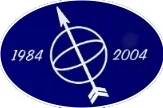Feb04 C
archive > Log > Log2004
Conferences
Maritime Security and Terrorism
Captain lain Beange MNI and Harry Hirst LLB, MNI

On 30 October 2003, the Nautical Institute Hong Kong Branch (NIHK) hosted a full day seminar entitled 'Maritime Security and Terrorism'. The seminar took place on board the cruise ship Star Pisces while moored alongside Ocean Terminal in Hong Kong. It was very well attended, with more than 140 delegates.
The Chairman of the NIHK, Captain Alan Loynd FNI, welcomed the delegates and started by thanking all the sponsors whose generous support had made it all possible. Then, and as in previous years, the NIHK was very privileged again to have the Director of Marine in Hong Kong, Mr SY Tsui, give the opening address.
The morning session, entitled 'No Safe Passage', looked first at piracy at sea and then at ship security in port.
Captain David Watkins of the China Navigation Co Ltd had written a graphic account of pirates boarding one of his ships, giving a serving master's perspective which was read out in his absence by Captain Alan Loynd. This was followed by a case study in modern day piracy presented by Mr Sotaro Mori and Mr Yoshihiro Miyano of Yoshida and Partners, Japan, with Mr Paul Barfield of Thomas Cooper and Stibbard, Singapore. Together they recounted in detail the sad story of the Alondra Rainbow and the practical and legal problems involved in finding and recovering the ship and bringing the pirates to justice. With prevention always the best cure, Mr Brian Kelly of Hill and Associates discussed various measures for defending a ship against piracy attacks, introducing the delegates to some interesting new products including sticky glues and liquid ball bearings, designed to stop the pirates in their tracks.
After morning coffee, Mr Goran Rudelius of The Swedish Club discussed the problems of stowaways and the difficulties shipowners and their insurers have in arranging their repatriation. He also spoke of the dangers to the ship and crew where the stowaways are many in number, showing video footage of US Coast Guard searches on board one such ship. Then Mr Cheung Chi-Sum of the Hong Kong marine police spoke about anti-piracy and smuggling operations in Hong Kong waters, giving details of the various craft and resources the marine police have at their disposal. Captain Gustaf Gronberg of Star Cruises rounded off the morning session by reviewing the requirements of the ISPS Code and explaining the various security measures which Star Cruises had developed and put in place in compliance therewith.
Lunch was a sumptuous buffet in the main restaurant on board the ship with panoramic views over Victoria Harbour, and made more enjoyable by the amusing lunch time address given by Captain Jim Garrett, Regional Commander of the US Coast Guard from Japan.
The afternoon session, entitled 'What's in the box', looked first at port and terminal security and then at the use of ships and cargoes as vehicles for terrorism.
Mr Rob Lockett, of American Science and Engineering Inc from Singapore, opened the session detailing the use of X-ray scanning equipment to detect contraband, stowaways and explosives in containers and vehicles. Mr John Lee, of Modern Terminals Ltd, then spoke about the security of berths and terminals and Mr Leung Chi-Chui addressed the delegates about the role of the Hong Kong Customs and Excise Department in this regard.
Mr Leo Lin, the American Consulate General, discussed the US Customs and border protection initiatives, looking at CSI and C-TPAT. He was followed by Mr Kim Petersen of SeaSecure LLC, who spoke about the ISPS Code and specifically of the need to identify threats and vulnerabilities when deciding on the solutions to be adopted. Mr Rob Grool of the Wallem Group Ltd concluded the session by examining the effect of all these security initiatives on the shipping industry, noting that the practical and other difficulties involved do not appear to have been fully thought through when drafting the ISPS Code, and that it was unfair to burden the private sector with the responsibility and costs of ensuring increased security against terrorism.
The President of The Nautical Institute, Captain Robbie Middleton, gave the closing address, emphasising the importance of the master and crew and sounding a warning about the ever increasing burdens being placed on a modern day ship's master, with more and more regulations and paperwork.
Seaways February 2004

